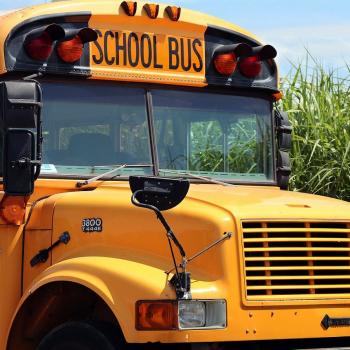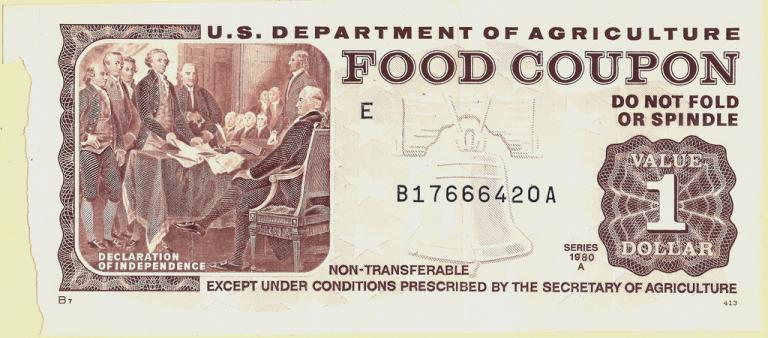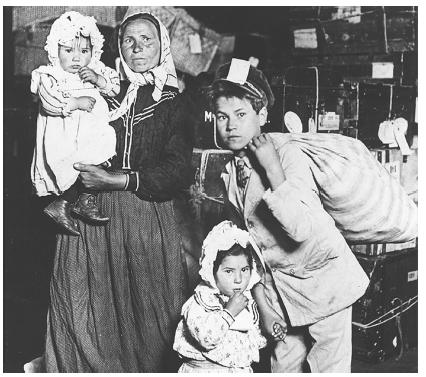
The White House is, reportedly, based on the usual anonymous sources, about to publish, via the usual measures of such, a re-definition of what it means to be a “public charge” in such a way as to prevent immigrants who meet the new, more encompassing definition, from being able to move from temporary to permanent residency or from permanent residency to citizenship. Here’s NBC News’ reporting:
The Trump administration is expected to issue a proposal in coming weeks that would make it harder for legal immigrants to become citizens or get green cards if they have ever used a range of popular public welfare programs, including Obamacare, four sources with knowledge of the plan told NBC News.
The move, which would not need congressional approval, is part of White House senior adviser Stephen Miller’s plan to limit the number of migrants who obtain legal status in the U.S. each year.
Details of the rulemaking proposal are still being finalized, but based on a recent draft seen last week and described to NBC News, immigrants living legally in the U.S. who have ever used or whose household members have ever used Obamacare, children’s health insurance, food stamps and other benefits could be hindered from obtaining legal status in the U.S.
The Washington Post provides more context on the concept of the “public charge”:
Currently, to be barred from entry, immigrants must arrive without funds and be judged unemployable, making them likely to become a public charge. To be removed after entry, immigrants must have received cash benefits from the government for “general maintenance” or have experienced long-term institutionalization.
One question I’ve seen clarified in neither report, nor others I’ve read, is what sort of instances of “getting green cards” we’re talking about. Are the people affected, those who were not living here with temporary residency, such as a student or temporary employment visa, but instead those who are living here illegally and have found their own “path to citizenship” – e.g., by marrying an American citizen or otherwise finding a loophole?
Now, I think it goes without saying that it’s wrong to penalize an individual who thought he was playing by the rules, when instructed to apply for Obamacare, for instance, for members of his family even if he himself isn’t eligible. So what if the approach was changed so that this only applied prospectively? Certainly it would be a radical shift from the current approach in which immigrants are urged to apply for whatever benefits they, or any member of their family may be eligible for: food stamps, medical care, etc.. What would the impact of such a change be? Would such families attempt to do without, and, if so, would this simply mean that they’d have to spend more of their money on their own living expenses and send less of it back to their home countries, or would we see starving families? Or would families carry on as usual, with the threat of someday not getting that green card, or not being able to apply for citizenship, too distant to have any relevance? And, what’s more, once upon a time, the evaluation of whether one would be a “public charge” would take place before admitting one to the country in the first place (and still does, to a minimal degree — my husband had to get a chest X-ray to prove he didn’t have TB, for instance), but now we don’t make admittance as a chain migrant, or a lottery winner, or the like, or the granting of a green card, contingent on having the ability to support a family, for instance, by requiring knowledge of English or specialized job skills or education. Would any prospective immigrant be able to assess, “can I get a job which will allow me to support a family?” in deciding whether to immigrate?
What’s trickier, though, is that we don’t really have a good means of drawing a line between “welfare” and “government benefits that require a low-ish income for eligibility.” TANF, yes. SSI, yes. Food Stamps, yes. Section 8, sure. But what about Obamacare, which provides subsidies up to middle class-ish income levels? Or Medicaid, considering that it is simply the form of healthcare provision if you have a low income? (No, you can’t buy your policy on the exchange with subsidies instead; if your income is too low, it’s Medicaid or nothing.) What about Pell Grants, or subsidized student loans? What about the EITC? Hypothetically, what about the multitude of proposals such as the so-called “Medicare for All” or subsidies for childcare or parental leave benefits? When the government gets involved in providing benefits to a growing share of the population, when means-tested benefits extend quite a bit beyond people living in poverty, and when those benefits are provided to people who are gainfully employees, just at low wages, there just isn’t a bright line, an obvious cut-off between “welfare” and other government benefits.
And beyond all that, this is another indicator of legislation which simply leaves too much to the discretion of the administration via rule-making. It should not be left to the Trump administration, or the Haley administration or the Sanders administration, to decide what it means to be a “public charge.” It’s a part of the job of writing legislation to write it in clear terms rather than leaving the ultimate decision-making to others.
Image: By Lewis W. Hine(Life time: 1874-1940) – Original publication: Photo-studyImmediate source: Brooklyn Museum, Public Domain, https://commons.wikimedia.org/w/index.php?curid=51292180. I find this image striking, since it seems to be a common one chosen to illustrate how anxious immigrants were, how little they came to the U.S. with – but the caption totally changes the narrative.












